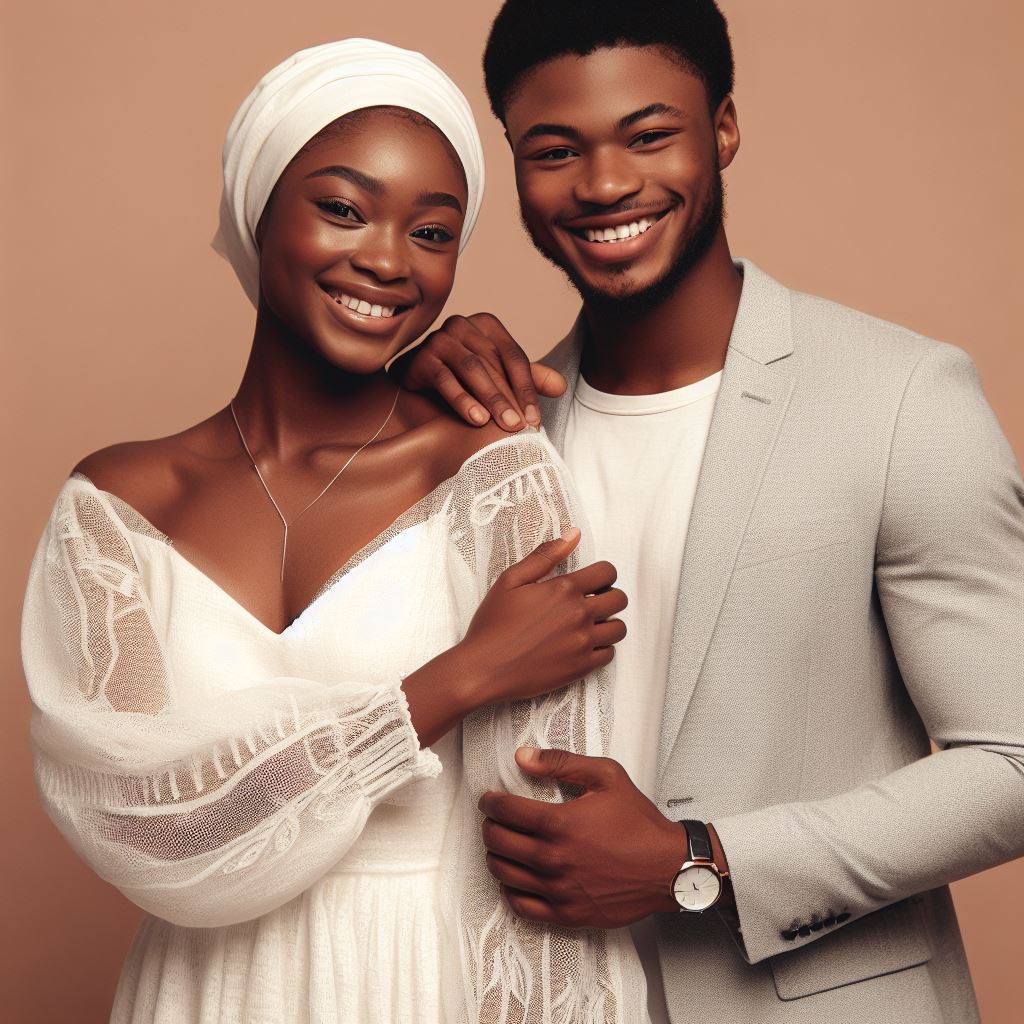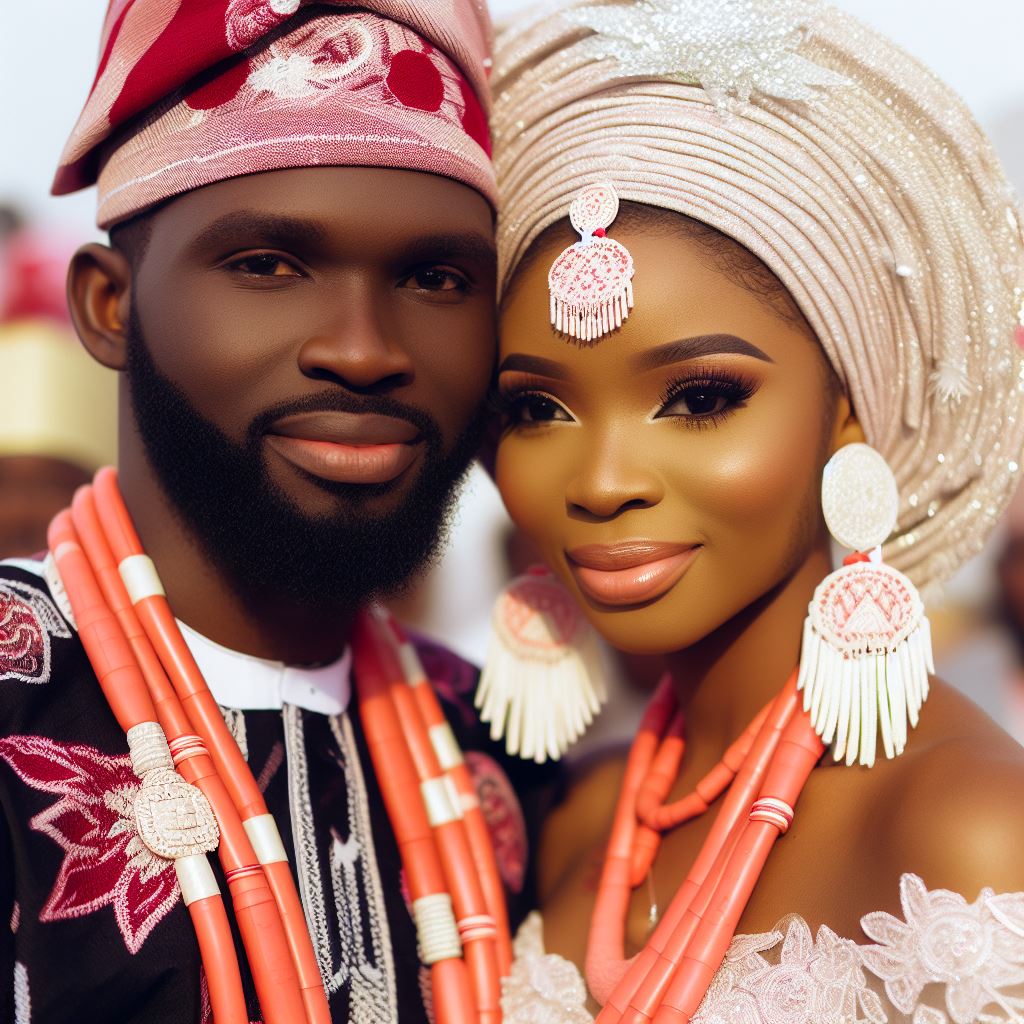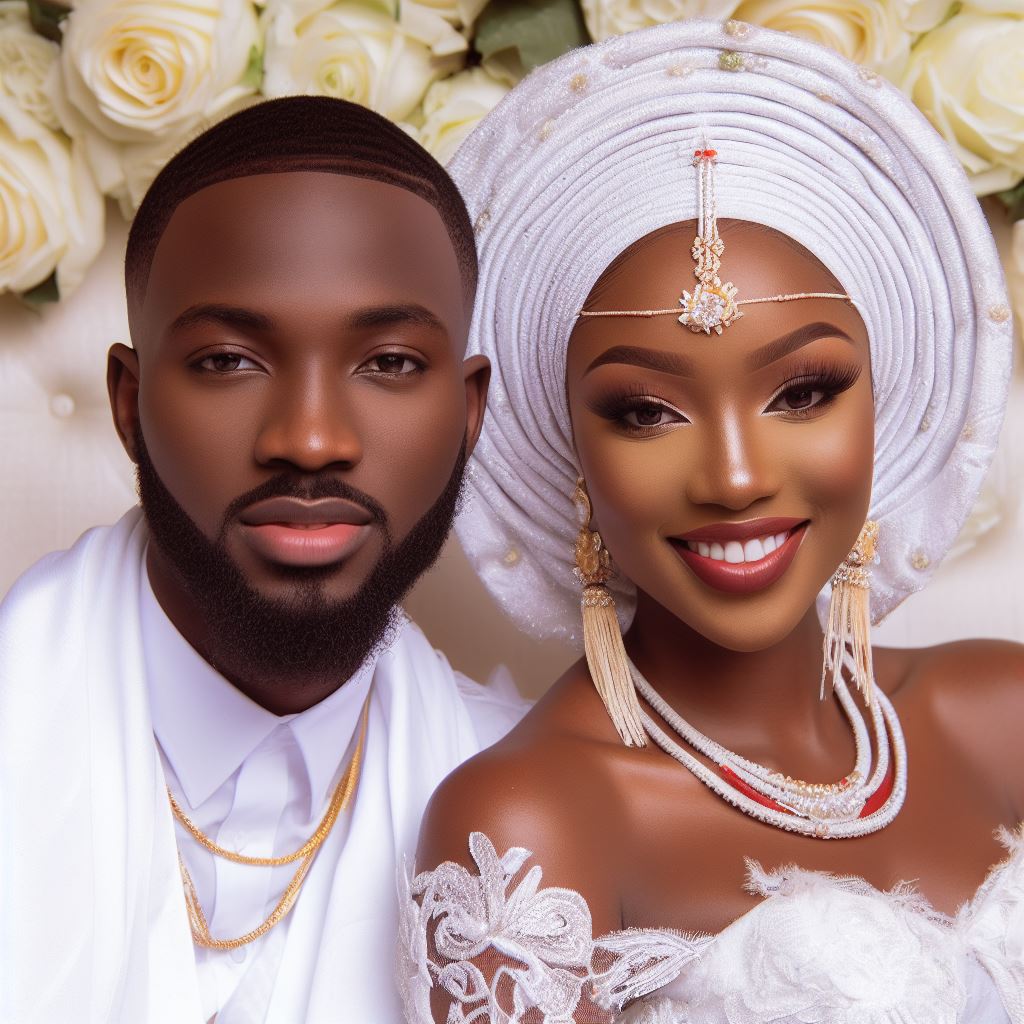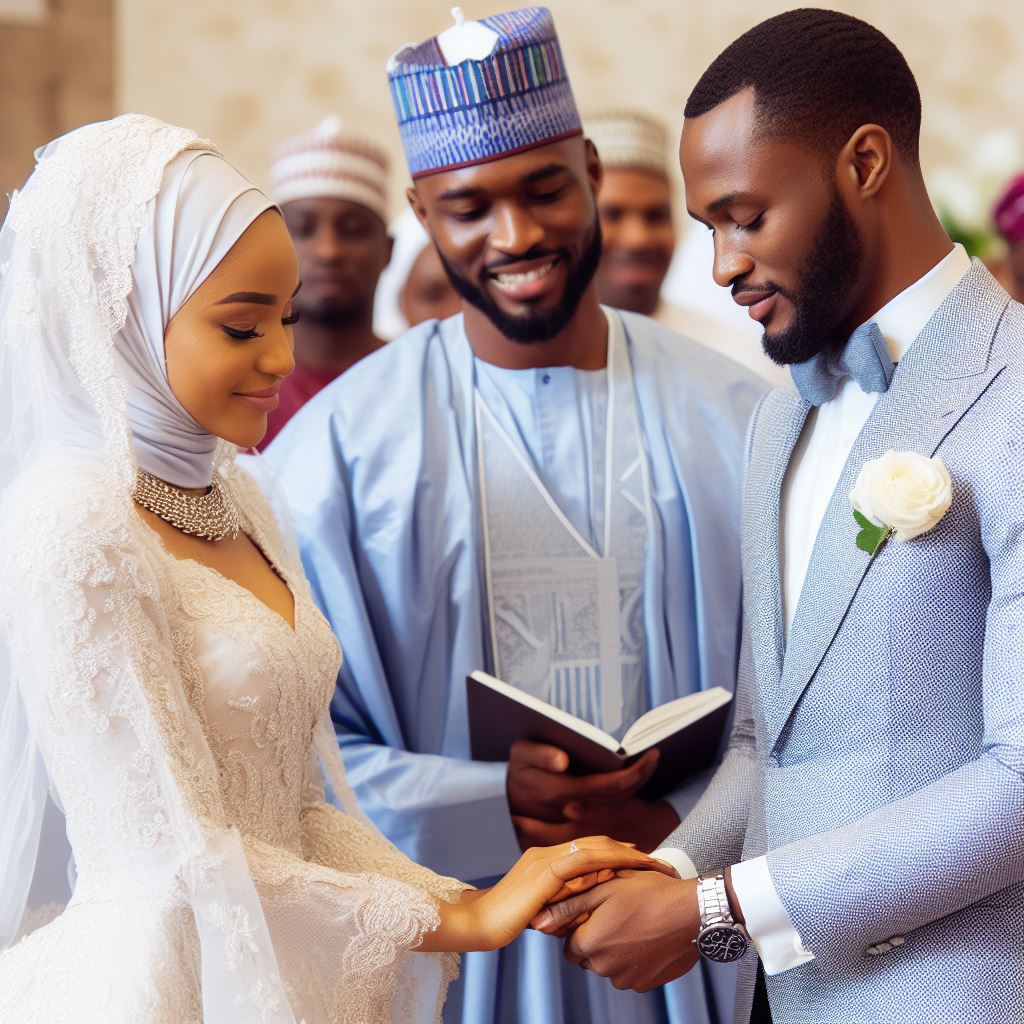Introduction
Nigerian Marriage Culture
Modern vs Traditional Nigerian Marriage.
The rich tapestry of Nigerian culture is intricately woven with diverse marriage traditions.
Each ethnic group within the country contributes unique customs and rituals that shape the way marriages are conducted.
Importance of Marriage
Marriage holds profound significance in Nigerian society.
It is not only a union of two individuals but a merging of families, communities, and legacies.
Family is considered the bedrock of society, and marriage is the cornerstone.
Thesis Statement
This section embarks on a journey to explore the evolving dynamics of Nigerian marriages.
It delves into the shifting landscape of modern vs. traditional practices, shedding light on the forces that influence these changes and the impact on individuals and communities.
Read: Inspirational Quotes for Crafting Your Marriage Toast
Traditional Nigerian Marriage
Arranged Marriages
Role of parents in choosing the spouse
In traditional Nigerian marriage, parents play a central role in the selection of a spouse for their children.
The wisdom and experience of the older generation are highly valued, and parents often seek a suitable partner based on shared values, family background, and social standing.
Preservation of cultural and family values
Arranged marriages uphold cultural and family values, serving as a means to strengthen ties between families and communities.
This approach ensures that the legacy of traditions is passed down through generations, fostering a sense of belonging and identity.
Traditional Marriage Ceremonies
Negotiations and dowry payments
Traditional Nigerian marriage ceremonies involve intricate negotiations and dowry payments.
The groom’s family typically presents gifts, livestock, or money to the bride’s family as a sign of respect and commitment.
This exchange is not merely a transaction but a symbol of goodwill and cooperation between the families.
Ceremonial rituals and traditional practices
These ceremonies are rich in cultural rituals and practices that vary across ethnic groups.
From the Yoruba Gelede dance to the Igbo Ikwu Aka ceremony, these customs are a vibrant display of the community’s unique heritage.
They strengthen the bonds between the couple, families, and community.
Gender Roles and Expectations
Patriarchy and male dominance
Traditional Nigerian marriages often reflect a patriarchal structure, where the husband holds a dominant role.
This cultural aspect is evolving but still influences gender dynamics within the marriage.
Gender-specific responsibilities within the marriage
Women often have clear, defined roles, including tending to domestic tasks, childcare, and upholding the family’s social standing.
Men, on the other hand, are expected to provide and protect the family, exemplifying the strength and security of the marriage.
In summary, traditional Nigerian marriages are a tapestry of cultural values, arranged unions, and ceremonial practices.
They serve as a testament to the nation’s rich heritage, where the role of parents, dowry negotiations, and gender dynamics all contribute to the complexity and beauty of these unions.
Read: Igbo Wedding Toasts: Blending Tradition & Modernity
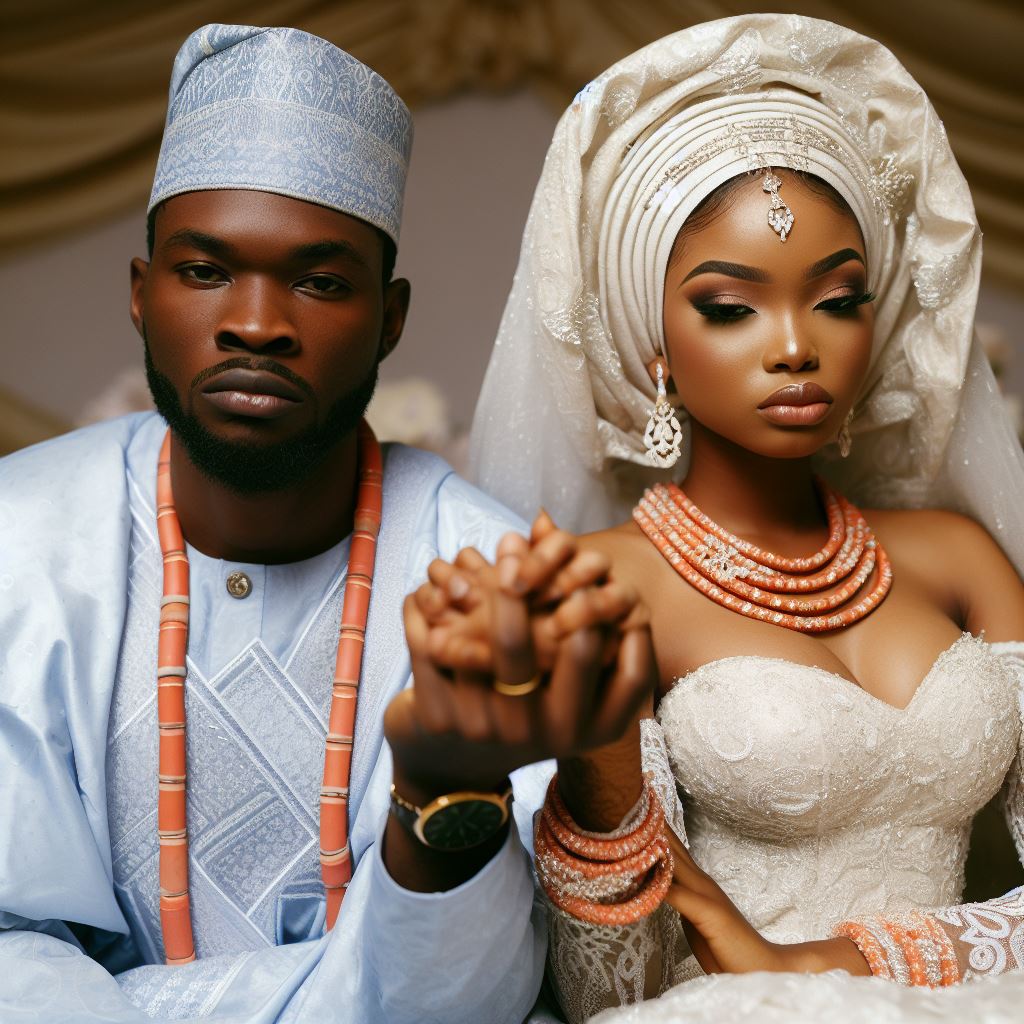
Modern Nigerian Marriage
Influence of Western culture
- There has been a shift towards love marriages influenced by Western culture.
- The dating and courtship culture has significantly increased in modern Nigerian marriages.
Changing family structures
- There is a rise of nuclear families in modern Nigerian marriages.
- Dual-income households have become more common, leading to shared responsibilities between spouses.
Negotiation of dowry payment
Modern Nigerian marriages reflect Western cultural influences, shifting family structures, and evolving dowry practices:
- Western culture impacts love marriages, where affection and emotional connections guide partner choices.
- Dating and courtship culture gains traction, allowing couples to know each other before marriage.
- Changing family structures show a transition from extended to nuclear families, influenced by urbanization and dual-income households.
- Shared responsibilities in households reflect changing gender roles and economic independence.
- Dowry’s significance diminishes in modern marriages, emphasizing compatibility and shared values.
As Nigeria balances tradition and modernity, its marriage customs continue evolving, shaping the future of unions.
Read: Yoruba Wedding: A Deep Dive into Traditional Toasts
Challenges and Conflicts
Clashes between traditional and modern values
- Generational gaps and differing expectations
- Balancing cultural traditions with individual desires
In Nigerian society, traditional and modern values clash, causing challenges in marriages.
These conflicts stem from generational gaps and differing expectations.
Additionally, there’s a struggle to balance cultural traditions with individual desires.
Gender dynamics and empowerment
- Struggles for gender equality within marriages
- Changing roles and expectations for both spouses
In traditional Nigerian marriages, expectations are rooted in customs and rituals, but younger generations are influenced by modern ideologies.
Bridging the generation gap requires communication and compromise.
Balancing cultural traditions with individual desires can be challenging, as Nigerian culture values familial ties and societal norms.
This can clash with personal fulfillment and independence.
Gender dynamics and empowerment issues, like gender equality, persist in marriages.
To address these challenges, open communication is crucial.
Couples must have difficult conversations about expectations and cultural backgrounds.
Education, awareness programs, and professional counseling can help bridge the gap between traditional and modern values.
Basically, clashes between traditional and modern values, as well as gender dynamics and empowerment, pose challenges in Nigerian marriages.
For a harmonious married life, it is crucial to bridge the generation gap and balance cultural traditions with personal desires.
Open communication, challenging societal norms, and seeking professional support are pathways to navigate these challenges and create marriages that reflect both cultural heritage and personal aspirations.
Read: Making Your Marriage Toast Memorable: Tips & Tricks
Conclusion
Nigerian marriages have undergone significant changes in recent years.
Modern ideas of love and individual choice have challenged traditional practices like arranged marriages and bride-price negotiations.
This shift has brought both positive and negative impacts on the institution of marriage.
It is vital for Nigerians to understand and embrace the strengths of both the traditional and modern aspects of marriage.
Traditional practices can help instill values of respect, commitment, and family cohesion.
On the other hand, modern ideas emphasize the importance of communication, equality, and personal fulfillment within a marriage.
The future of Nigerian marriages lies in striking a delicate balance between tradition and adaptation.
It is possible to honor cultural customs while also respecting the autonomy and happiness of individuals.
This can be achieved through open dialogue, compromise, and a willingness to embrace change.
By appreciating the evolving dynamics of Nigerian marriages, society can ensure the longevity and success of this important institution.
It is crucial to recognize that change is inevitable and that both traditional and modern aspects have significant contributions to offer.
Only through a harmonious blend of the two can Nigerian marriages thrive in the years to come.

